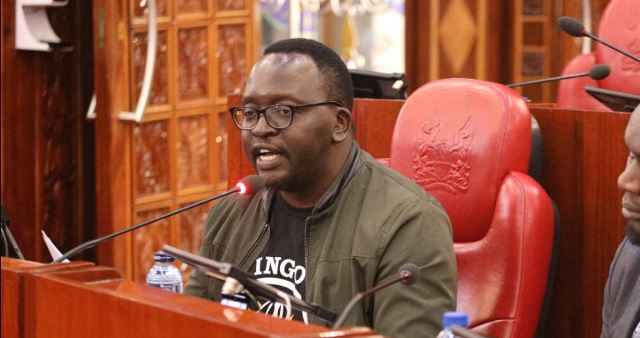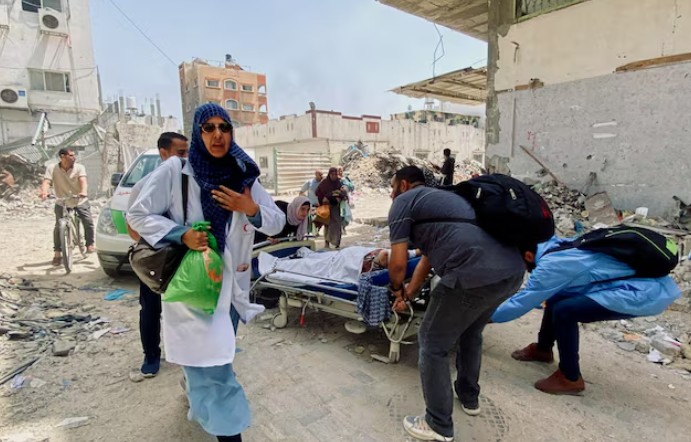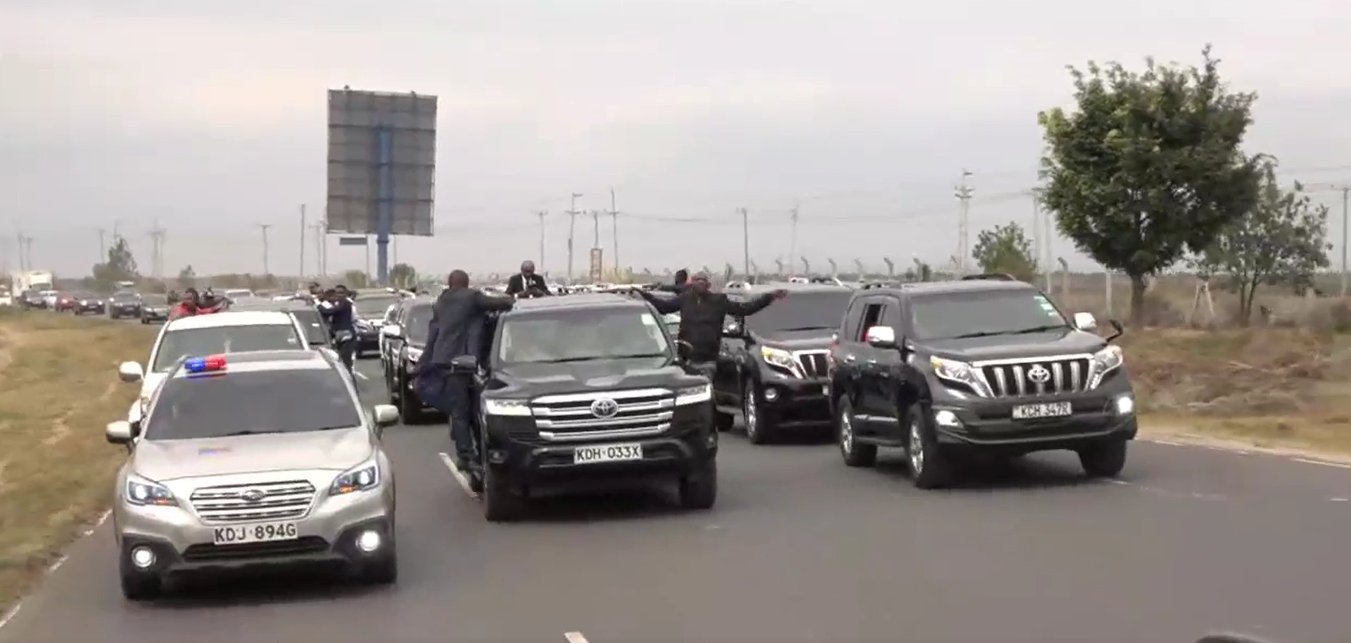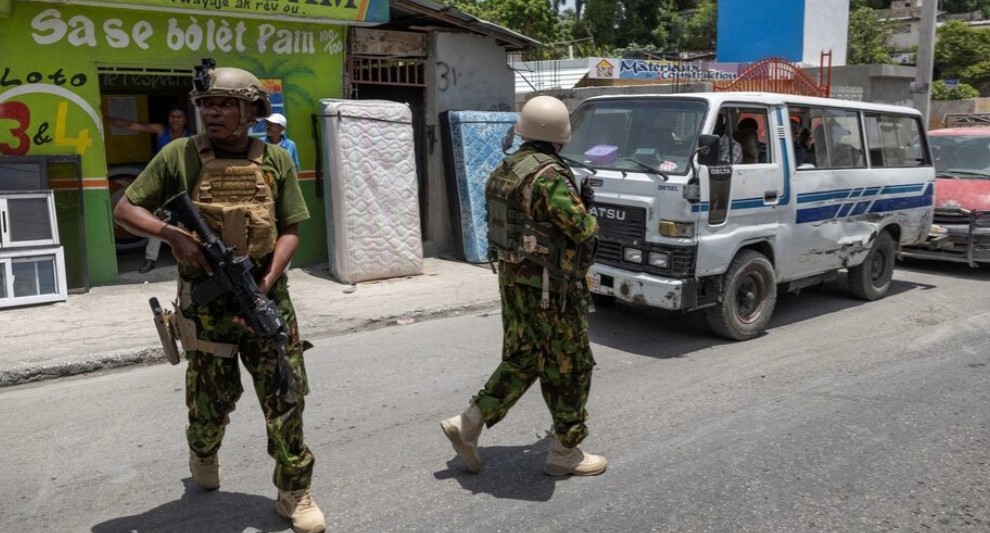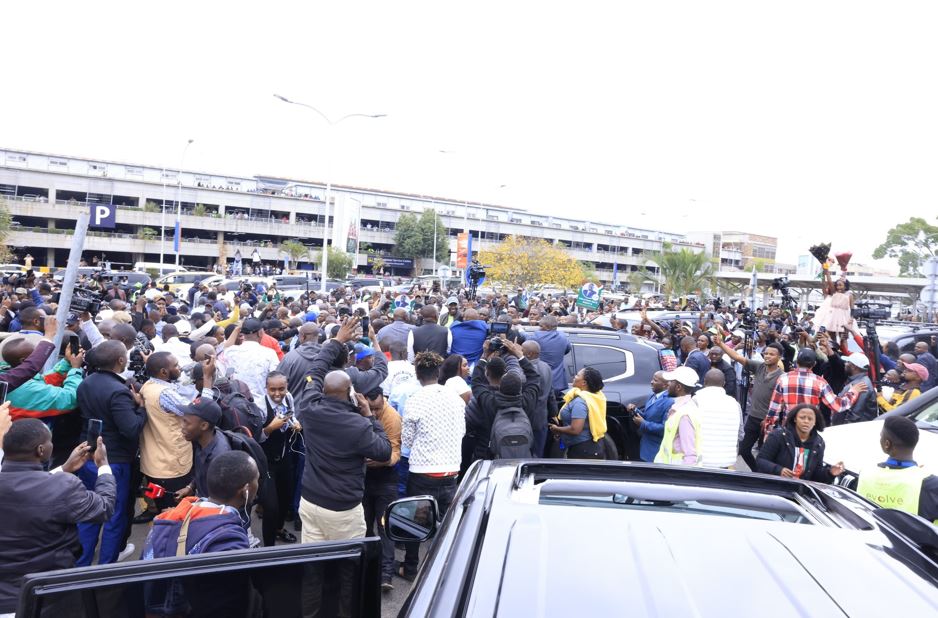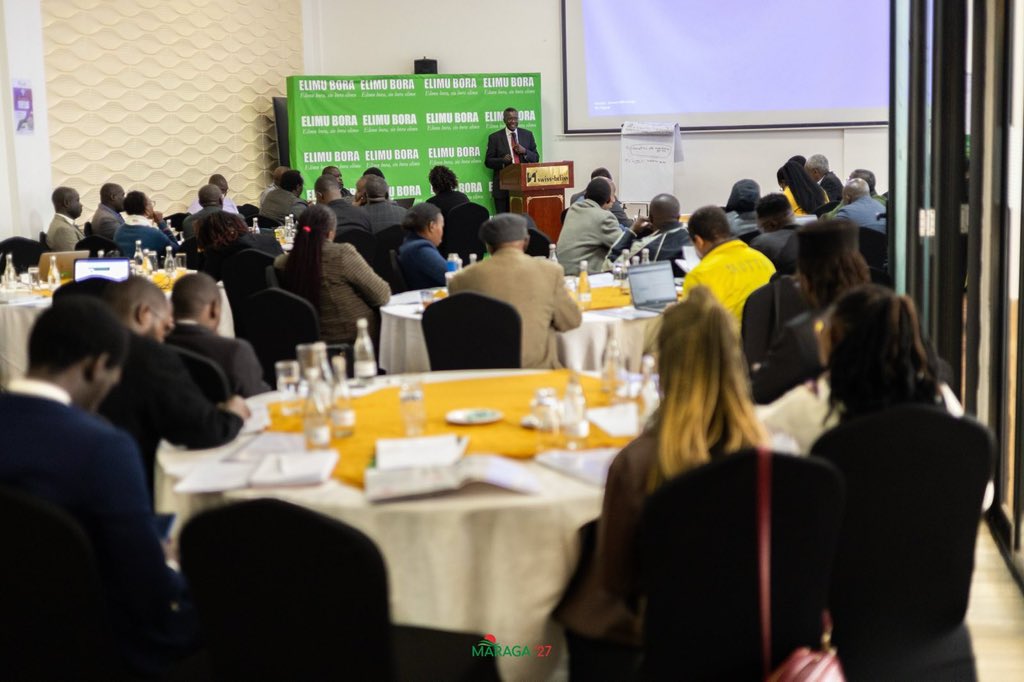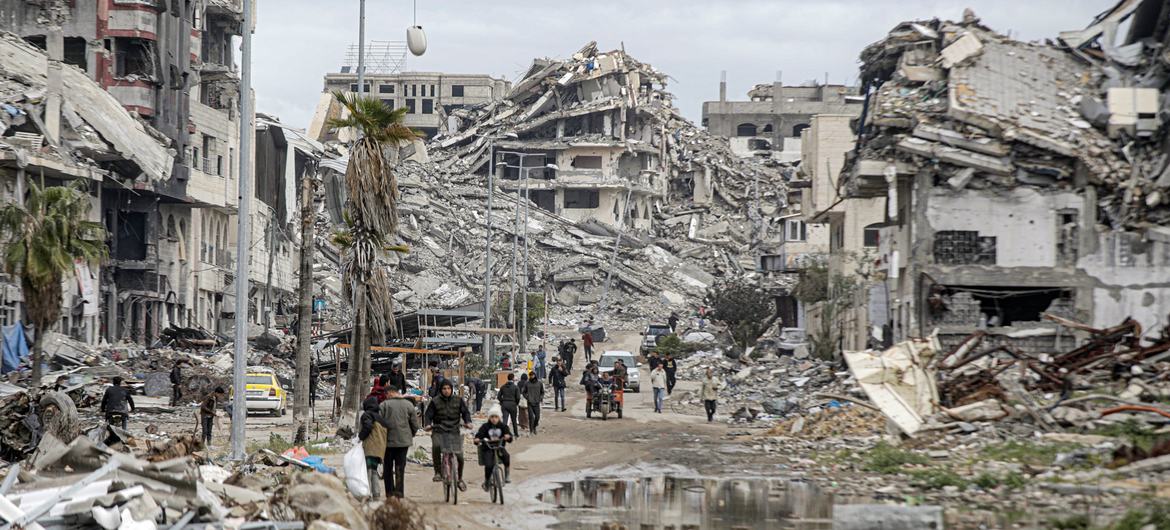Gaza aid insufficient to avert ‘widespread starvation’
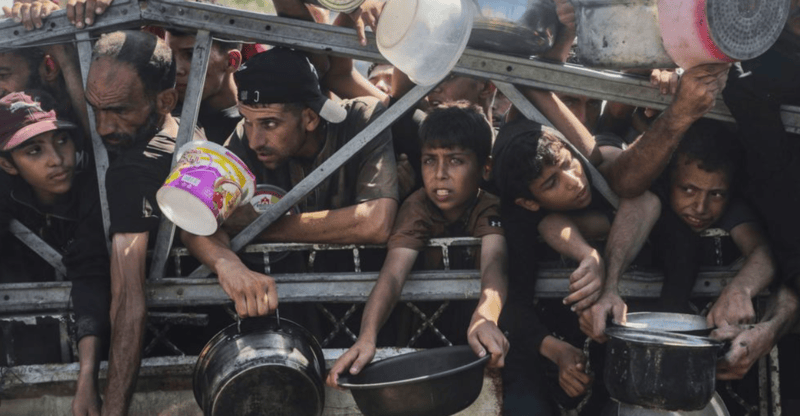
Al-Kheetan insisted that in the past few weeks, Israeli authorities have only allowed aid to enter in quantities that remain “far below what would be required to avert widespread starvation”.
The small trickle of aid entering Gaza is totally insufficient to alleviate starvation and displacement in the Strip, UN humanitarians said on Tuesday.
“The risk of starvation is everywhere in Gaza,” UN Human Rights Office spokesperson Thameen Al-Kheetan told reporters in Geneva.
More To Read
- Antonio Guterres renews ceasefire appeal as Israel intensifies assault on Gaza
- How can Western countries back up Palestine recognition with action? Here are 4 ways to pressure Israel
- West Bank settler expansion scheme threatens Palestinian life: UN
- Leaked audio reveals ex-Israeli military intelligence chief justified mass Palestinian deaths
- UN raises alarm over surge in attacks on aid workers as world marks humanitarian day
- Amnesty accuses Israel of intentionally starving Gaza population
“This is a direct result of the Israeli government's policy of blocking humanitarian aid,” he said.
Al-Kheetan insisted that in the past few weeks, Israeli authorities have only allowed aid to enter in quantities that remain “far below what would be required to avert widespread starvation”.
The UN said on Monday that hunger-related deaths continue to be reported in the Strip, including among children.
More people displaced
As the Israeli army intensified its attacks in the north of the enclave, it continued to issue forced displacement orders for Palestinians, Al-Kheetan said.
He noted that Gazans have been told to move to the Al-Mawasi area, despite continuing airstrikes and disastrous conditions there.
“Hundreds of thousands of Palestinians forcefully displaced to Al-Mawasi have little or no access to essential services and supplies, including food, water, electricity and tents,” he warned.
Deadly pursuit of aid
The OHCHR spokesperson stressed that reaching humanitarian aid “can be a deadly pursuit” with the latest data indicating that 1,857 Palestinians were killed while seeking food from May 27, when the US and Israel-backed militarised aid distribution scheme known as the Gaza Humanitarian Foundation started its operations.
Out of that number, he said that 1,021 were killed in the vicinity of the Gaza Humanitarian Foundation sites and 836 on the routes of supply trucks.
“Most of these killings appear to have been committed by the Israeli military,” Al-Kheetan said.
Asked how the situation could get even worse, Jens Laerke, the spokesperson for the UN humanitarian affairs coordination office (OCHA), said that “it has already gotten worse”, insisting on the devastating effects of the Israeli ban on the entry of shelter materials into the enclave.
While the Israeli authorities recently announced that they would lift the ban on shelter supplies, Laerke said that “the United Nations and our partners have, as of last night, not been able to bring in shelter materials following the Israeli announcement.”
“There's a set of impediments that still needs to be addressed, including Israeli customs clearance,” he added.
Need for shelter
The UN said on Monday that, according to partners’ estimations, at least 1.35 million people in Gaza need emergency shelter.
Aid agencies have warned that tents being used in Gaza are worn out from prolonged sun exposure and frequent displacement.
Asked about the reasons given for the ban on shelter items, Laerke explained that in a conflict, some shelter items, such as tentpoles, can fall under the “dual-use regime” as they could be used for both civilian and military purposes.
“Shelter has been banned from entry for about five months, and in that period, over 700,000 people have been displaced or re-displaced,” he said.
People forced to flee time and again often have to leave behind the tents that they have been provided, Laerke explained, which creates a challenge for aid workers “trying to respond to people where they are”.
The looming expansion of Israel’s military activities in Gaza City is another major concern for UN humanitarians, as it would again push thousands of people into a severely overcrowded area in the south of the Strip.
Asked about the impact of Israel’s plans to occupy Gaza City, Al-Kheetan underscored a “huge risk” for civilians.
“There are risks of mass displacement… more killings and more misery that we have already seen in the Gaza Strip,” he warned. “Among those who will be affected are the most vulnerable, people with disabilities, the injured, the children, and women”, he concluded.
Response to prison video
In other developments, the human rights spokesman said that video footage showing Israeli National Security Minister Itamar Ben-Gvir berating and taunting Palestinian leader Marwan Barghouthi inside an Israeli jail was “unacceptable.”
He said the minister's behaviour and the publication of the images constitute an attack on Barghouthi's dignity.
He added that international law requires that all detainees be treated humanely, with dignity, and that their human rights be respected and protected.
“Such conduct by the minister responsible for the Israeli Prison Service may encourage violence against Palestinian detainees, enabling human rights violations in Israeli detention facilities,” he said
Top Stories Today
